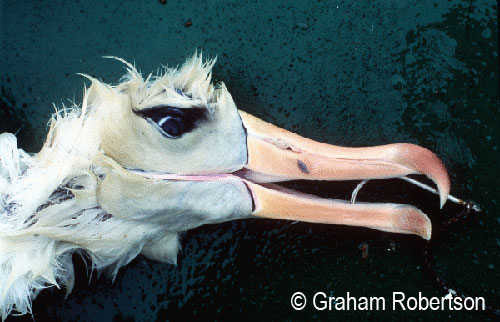Jose Peiro Crespo and Rory Crawford have produced a report for BirdLife International that reviews the Marine Stewardship Council (MSC) certification of 23 fisheries and concludes that the process “does not guarantee that a fishery is addressing the incidental capture, or ‘bycatch’, of marine mammals, seabirds, sea turtles, sharks and rays”.
“Our report highlights that MSC need[s] to take the opportunity of their forthcoming review of their standards to implement serious improvements to their bycatch requirements,” says Rory Crawford, Bycatch Programme Manager for the BirdLife Marine Programme. “As it stands, consumers cannot be fully confident that certified fish comes without impacts on non-target species – from sharks to seabirds to whales” (click here).
The report’s Executive Summary follows in part:
“The Marine Stewardship Council (MSC) is a seafood certification scheme and ecolabel that sets and maintains a standard for sustainable fishing based on three principles: 1) sustainable target fish stocks; 2) the environmental impact of fishing; and 3) effective management. Twelve percent of global marine wild catch is currently certified under the MSC Fisheries Standard.
Following the codes of best practice established under the United Nations Food and Agricultural Organisation and International Social and Environmental Accreditation and Labelling, MSC’s Fisheries Standard has been reviewed and revised several times since it was first developed. However, the standard does not yet fully ensure that certified fisheries are operating to one of the general principles set out in the FAO Code of Conduct for Responsible Fisheries: the minimisation of non-target catch or ‘bycatch’.
This study undertook a review of non-target bycatch (including elasmobranchs, marine mammals, seabirds and sea turtles) in 23 fisheries (or groups of fisheries) which have been certified by the MSC to assess the effectiveness of the MSC criteria and standard in ensuring that the impacts of certified fisheries on non-target species are minimised, or at least reduced. To facilitate comparisons, the 23 fisheries were grouped into six case studies: North Atlantic gillnets, North Atlantic longline, tuna purse seine, Southern Hemisphere trawl, North Sea mixed fisheries and Northwest Atlantic trap fisheries.
This review found that the existing standard is not yet delivering consistent reductions in endangered, threatened and protected species bycatch, with only three of the fisheries reviewed achieving an overall green score. This study concludes that MSC must strengthen the bycatch elements of the MSC standard at the next full Fisheries Standard Review, to prevent fisheries with unacceptably high impacts from being certified and to ensure that mortality of non-target species in certified fisheries is minimised. To that end, this review makes a series of recommendations for improvements.”

The face of 'bycatch': a Black-browed Albatross killed by a longliner, photograph by Graham Robertson
Read a popular article on the report here.
Reference:
Crespo, J.P. & Crawford, R. [2019]. Bycatch and the Marine Stewardship Council (MSC): a Review of the Efficacy of the MSC Certification Scheme in Tackling the Bycatch of Non-Target Species. BirdLife International. 39 pp.
The full case studies underpinning the report are available here.
John Cooper, ACAP Information Officer, 26 March 2019

 English
English  Français
Français  Español
Español